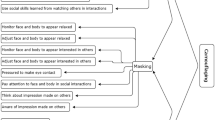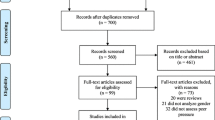Abstract
We examined the longitudinal stability of measures of negative peer status and aggressive-disruptive behavior in preschool boys. Subjects were 53 white 4- to 5- year- old boys from low-income family backgrounds. Peer sociometric measures of rejection and behavioral deviance were assessed in the fall and spring of the preschool year. Complementary measures were also obtained from teachers at both assessment points. Half of the boys designated as rejected on the basis of peer nominations maintained this status at the end of the preschool year. Teachers and peers did not agree on their selections of socially rejected children, but had good agreement concerning the identification of children with externalizing-type behavior problems. Finally, teacher and peer classifications of aggressive-disruptive children were highly stable throughout the preschool year. These findings indicate that peer-rejected children can be identified at very young ages, and that preschoolers can be reliable informants about the social maladjustment of peers.
Similar content being viewed by others
References
Asher, S. R., & Dodge, K. A. (1986). Identifying children who are rejected by their peers.Developmental Psychology, 22, 444–449.
Asher, S. R., & Hymel, S. (1981). Children's social competence in peer relations: Sociometric and behavioral assessment. In J. D. Wine and M. D. Smye (Eds.),Social competence (pp. 125–157). New York: Guilford Press.
Brodfeld, P. (1989).Preschoolers' peer relationships: Social status groups and reciprocal friendships. Unpublished manuscript, University of Michigan, Department of Psychology, Ann Arbor.
Coie, J. D., & Dodge, K. A. (1983). Continuities and changes in children's social status: A five-year longitudinal study.Merrill-Palmer Quarterly, 29, 261–282.
Coie, J. D., Dodge, K. A., & Copotelli, H. (1982). Dimensions and types of social status: A cross-age perspective.Developmental Psychology, 18, 557–570.
Crowther, J. H., Bond, L. A., & Rolf, J. E. (1981). The incidence, prevalence, and severity of behavior disorders among preschool-aged children in daycare.Journal of Abnormal Child Psychology, 9, 23–42.
Dodge, K. A. (1983). Behavioral antecedents of peer social status.Child Development, 54, 1386–1399.
Goldman, J. A., Corsini, D. A., & DeUrioste, R. (1980). Implications of positive and negative sociometric status for assessing the social competence of young children.Journal of Applied Developmental Psychology, 1, 209–220.
Goyette, C. H., Conners, C. K., & Ulrich, R. F. (1978). Normative data on revised parent and teacher rating scales.Journal of Abnormal Child Psychology, 6, 221–236.
Loeber, R. (1982). The stability of antisocial and delinquent behavior: A review.Child Development, 53, 1431–1446.
McCandless, B. R., & Marshall, H. R. (1957). A picture sociometric technique for preschool children and its relation to teacher judgements of friendship.Child Development, 28, 139–147.
Milich, R., Landau, S., Kilby, G., & Whitten, P. (1982). Preschool peer perceptions of the behavior of hyperactive and aggressive children.Journal of Abnormal Child Psychology, 10, 497–510.
Newcomb, A. F., & Bukowski, W. M. (1983). Social impact and social preference as determinants of children's peer group status.Developmental Psychology, 19, 856–867.
Olson, S. L. (1990).Development of conduct problems and peer rejection in preschool children: A social systems analysis. Manuscript submitted for publication.
Olson, S. L., & Lifgren, K. (1988). Concurrent and longitudinal correlates of preschool peer sociometrics: Comparing rating scale and nomination measures.Journal of Applied Developmental Psychology, 9, 409–420.
Parker, J. G., & Asher, S. R. (1987). Peer relations and later personal adjustment: Are lowaccepted children at risk?Psychological Bulletin, 102, 357–389.
Rubin, K. A., & Clark, M. L. (1983). Preschool teachers' ratings of behavioral problems: Observational, sociometric, and social-cognitive correlates.Journal of Abnormal Child Psychology, 11, 273–286.
Rutter, M., & Garmezy, N. (1983). Developmental psychopathology. In E. M. Hetherington (Ed.),Carmichael's manual of child psychology (Vol. 4): Social and personality development (pp. 775–912). New York: Wiley.
Spivack, G., Marcus, J., & Swift, M. (1986). Early classroom behaviors and later misconduct.Developmental Psychology, 22, 124–131.
Author information
Authors and Affiliations
Additional information
We thank the Head Start children, parents and staff who participated, and Karen Lifgren for her help with data collection.
Rights and permissions
About this article
Cite this article
Olson, S.L., Brodfeld, P.L. Assessment of peer rejection and externalizing behavior problems in preschool boys: a short-term longitudinal study. J Abnorm Child Psychol 19, 493–503 (1991). https://doi.org/10.1007/BF00919091
Revised:
Issue Date:
DOI: https://doi.org/10.1007/BF00919091




